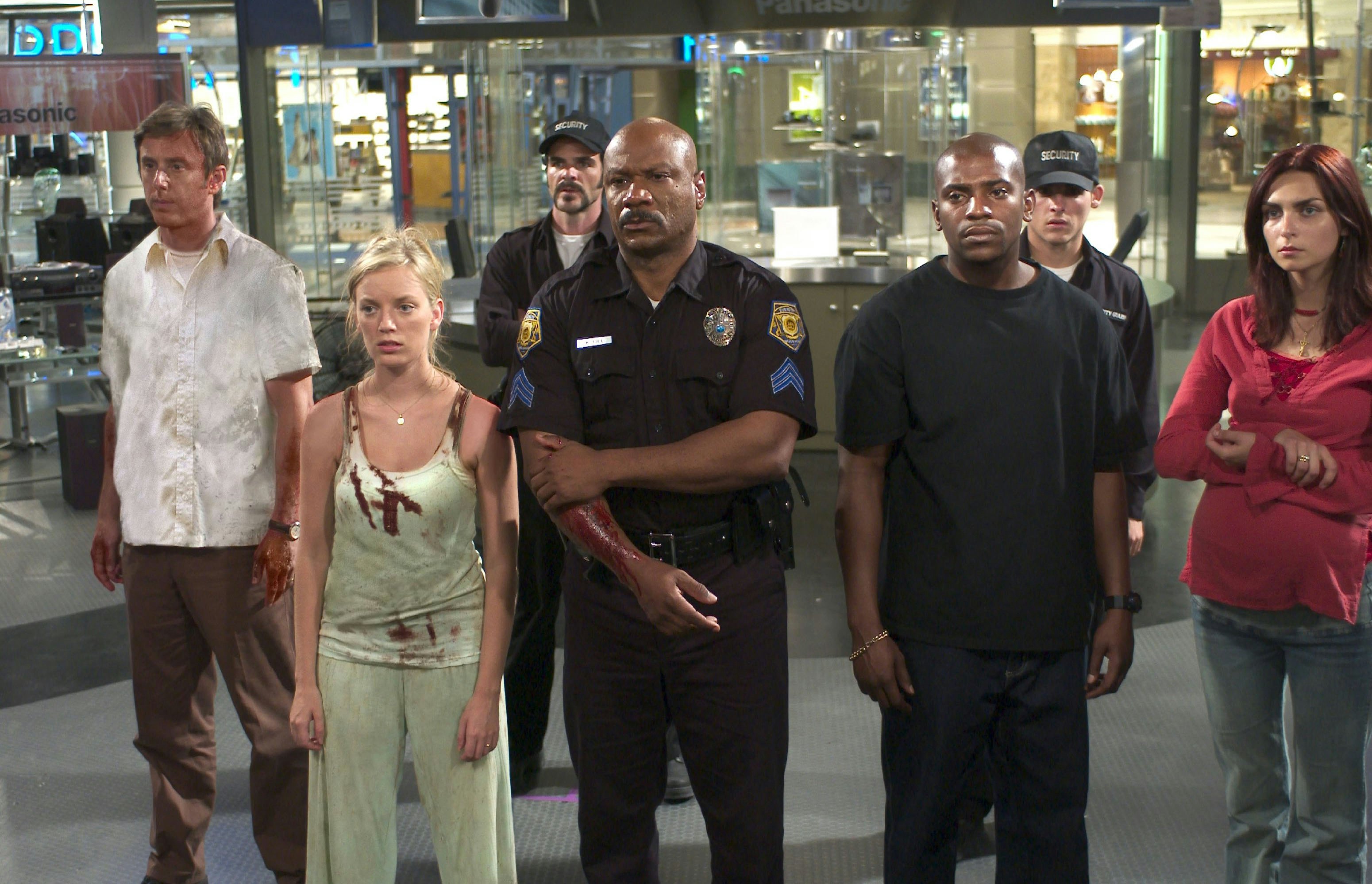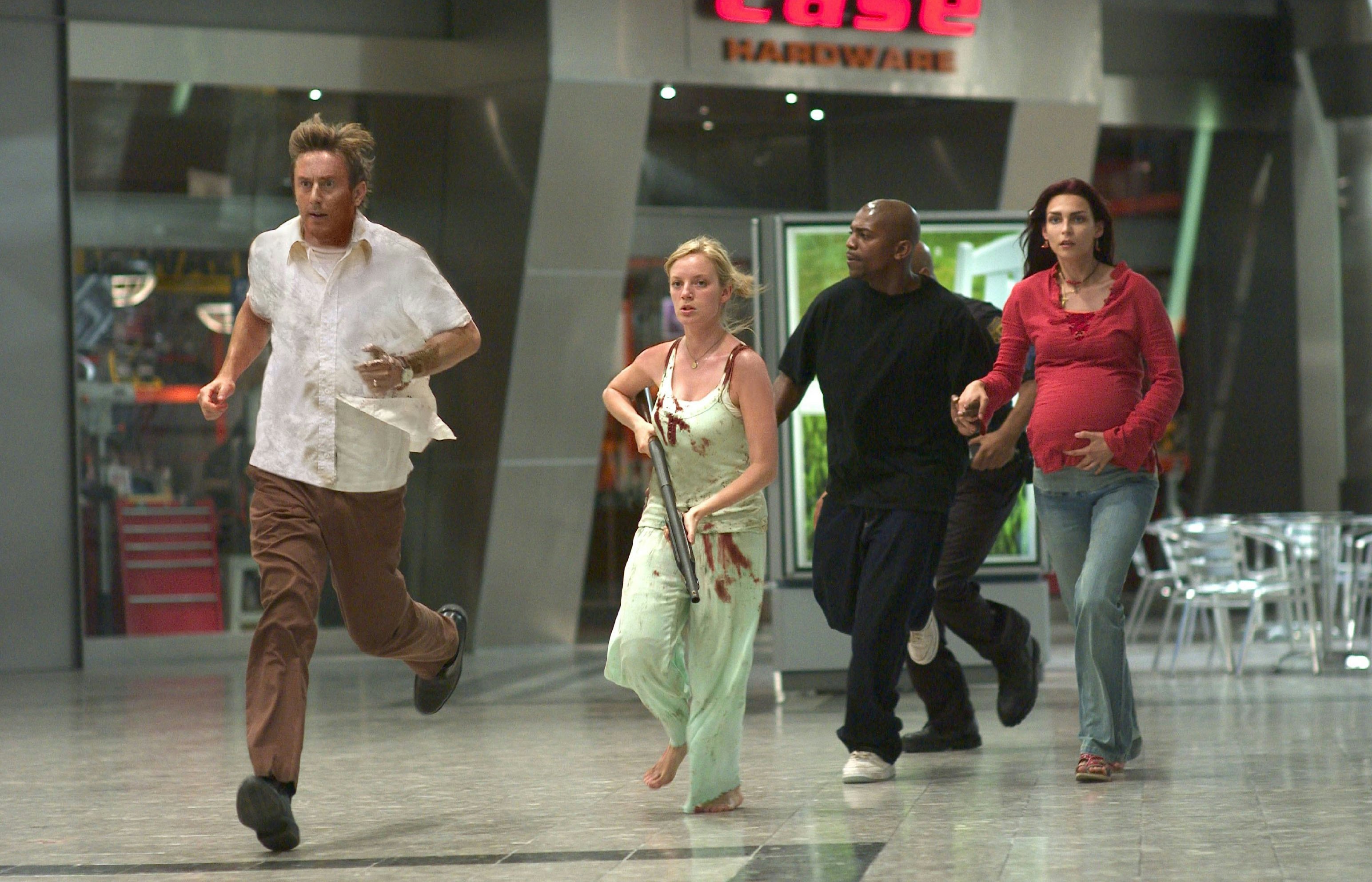
Before The Walking Dead dominated television, zombies underwent a transformative exhumation thanks to British filmmakers. But it didn’t take long for Americans to reclaim zombies as their own.
In 2004, after Edgar Wright (Shaun of the Dead) and Danny Boyle (28 Days Later) resurrected a fundamentally American subgenre, Zack Snyder and writer James Gunn remade George Romero’s 1978 classic Dawn of the Dead. Throwing different characters into the same premise, Snyder’s film is a gripping and thoroughly modern take on Romero’s film, revisiting his predecessor’s observations on mindless consumerism through a post-9/11 lens. Now, post-pandemic, Dawn of the Dead’s exploration of paranoia, isolation, and the selfishness of people struggling to survive remains relevant.
Snyder’s signature maximalism bombards every frame, as Dawn of the Dead is overrun with portents of the vision Snyder would later refine and imprint onto comic book epics like 300 and Batman v Superman. Combined with his taste for graphic violence and a visual boost from cinematographer Matthew F. Leonetti, whose vivid colors pop and contrast with deep blacks and blazing harsh whites, Dawn of the Dead gives zombie-seeking audiences the blood-soaked blockbuster they want with just enough drama and scares to lend it the dreadful atmosphere its story demands.
In 1978, Romero witnessed the power shopping malls held to influence the social fabric of America. As the story goes, Romero was invited to visit the sprawling Monroeville Mall in Pennsylvania a friend managed. After showing the director the labyrinth of rooms and hallways inaccessible to shoppers, Romero zeroed in on the abstract metaphor of consumerism placating Americans, and a radical scenario of surviving in a place not meant to be permanent.
In contrast, Snyder’s film is funnier, gorier, and raunchier as it follows an ensemble of new characters who wind up in a similar scenario. Its primary lead is hospital nurse Ana (Sarah Polley), who’s rescued by tough-as-nails cop Kenneth Hall (Ving Rhames). They join other survivors of a sudden zombie apocalypse in a sprawling suburban shopping mall. Call it quarantine.
In the 2000s, the mall was still the nexus of social networks, with certain stores becoming intrinsic to personal identity; shopping at Abercrombie & Fitch meant you were different than someone who went to Hot Topic. It was also a locus of patriotic duty. Consumer spending spiked after 9/11, as President Bush declared America was “still open for business.” Like Romero, Snyder sees a diverse group of people struggling to share the same oasis that offers respite from the outside world’s horrors.

While Snyder’s film gets a bit lost in its own thematic mazes — it’s hard to be a social satire when you make zombie massacres look fun — it holds a place in the canon of post-9/11 apocalypse films alongside Children of Men, Southland Tales, and Cloverfield. The inhabitants of Snyder’s mall, all there through dumb luck, soon learn how their base instincts and polarizing personalities create a peculiar environment where living people feel as dangerous as the hordes of undead.
But even without the movie’s pre-Walking Dead prodding of the human condition, there’s simply a thrill in the irony of being unprepared for the end of the world while stuck in a place teeming with food and supplies. Dawn of the Dead is hardly the smartest zombie movie of all time, and its execution is far less graceful than other apocalyptic dramas like Station Eleven and the modern Planet of the Apes trilogy. But when a movie concludes with a needle drop of Disturbed’s “Down with the Sickness,” you understand its mission statement. Shopping malls are in danger of becoming zombie institutions extinguished by the onslaught of online retail. But it wasn’t long ago when they were the only place in America where the end of the world seemed to make sense.
Dawn of the Dead is streaming on Netflix.







